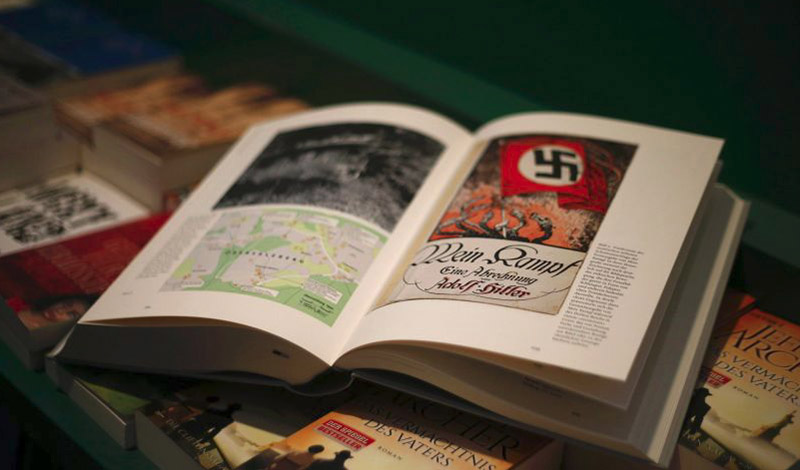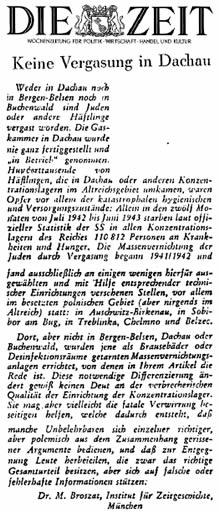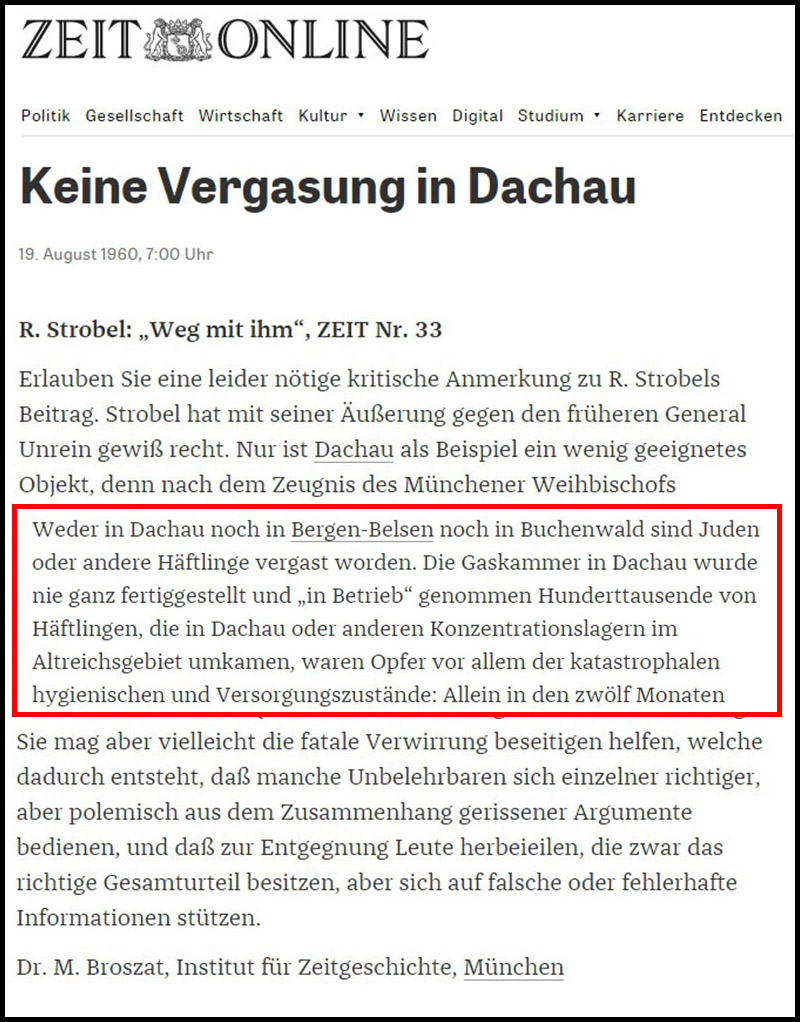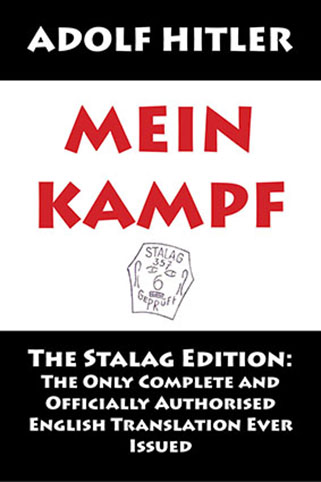Get Your “Un-annotated” Mein Kampf Here!
The “critical” edition of Adolf Hitler’s book Mein Kampf has sold out after being published legally in Germany for the first time in 70 years. The new German edition hit the bookstores on January 8, and the 4,000-copy print run sold out in less than a week.

 The publisher says it has orders for another 15,000 copies and is now working on a second print run. The book also made Der Spiegel’s best-seller list, winning 20th place on the nonfiction list.
The publisher says it has orders for another 15,000 copies and is now working on a second print run. The book also made Der Spiegel’s best-seller list, winning 20th place on the nonfiction list.
This demand is despite copious leftist “additions” having turned the original 600 page work into a 2,000 page monster. The “criticism and analysis” consists of page for page notes on almost every single point Hitler makes, from the petty to the weighty, and everything in-between.
The new edition was published by the infamous Institute of Contemporary History in Munich, which was founded in founded in 1949 specifically to “study the phenomenon of National Socialism”—from a far left perspective of course.
In spite of this political positon, it was one of the Institute’s historians, Martin Broszat, who in 1960 became the first establishment historian to admit in public that there had been no gas chambers in Germany.
This was a major concession in an era which had seen Germans hanged after “confessing” to such having committed such “crimes” just 15 years previously.
Titled “Keine Vergasung in Dachau” (No Gassing in Dachau), the letter corrected an earlier article in Die Zeit which had made all manner of wild claims about “gas chambers” in Dachau and elsewhere.
Weder in Dachau noch in Bergen-Belsen noch in Buchenwald sind Juden oder andere Häftlinge vergast worden. Die Gaskammer in Dachau wurde nie ganz fertiggestellt und 'in Betrieb' genommen. Hunderttausende von Häftlingen, die in Dachau oder anderen Konzeentrationslagern im Altreichsgebiet umkamen, waren Opfer vor allem der katastrofen hygienischen und Versorgungszustände... (“No Gassing in Dachau, Dr. Martin Broszat, Institute of Contemporary History in Munich, Letter in Die Zeit, 19 August 1960, p. 16. English translation: “Neither in Dachau, nor in Bergen-Belsen, nor in Buchenwald, were Jews or other inmates gassed. The gas chamber in Dachau was never completed and put 'into operation.' Hundreds of thousands of prisoners who perished in Dachau or other concentration camps in the old Reich area were primarily victims of the catastrophic hygiene and logistics situations.”)
The Institute of Contemporary History in Munich lists its new version of Mein Kampf at 59 euros ($64) per copy, but it is already being offered for hundreds of euros on Amazon and eBay for anyone who can’t wait for the next print run.
 The good news for TBR readers is of course, that the only officially-authorized—by Hitler personally—English translation is already available.
The good news for TBR readers is of course, that the only officially-authorized—by Hitler personally—English translation is already available.
Translated by a now-unknown English-speaking Nazi Party member, it was printed by the Franz Eher Verlag in Berlin for the Central Press of the NSDAP in limited numbers during the years 1937 to 1944.
Most copies were distributed to the camp libraries of English-speaking prisoner of war camps, and became known as the “Stalag” edition (Stalag being a contraction of the German word Stammlager or “POW camp”) because they all carried a camp library rubber stamp on the title page.
Only a handful of copies survived the war, and the text contained in this edition has been taken directly, without amendment, from one of these extremely rare editions.
This official translation is not to be confused with the “James Murphy” or “Ralph Mannheim” translations, both of which were edited and abridged and are unauthorized.
The Murphy and Mannheim editions both left out major sections of text, and contained long, clunky, badly translated and almost unintelligibly long sentences.
In sharp contrast, the only authorized “Stalag” edition contains none of these complicated and unnecessarily confused constructions, and is extremely easy to read, as anyone familiar with the other versions will immediately notice.
Most importantly, this only authorized edition contains the full text of the original German—and none of the deliberately-inserted racial pejoratives used in the Murphy and Mannheim versions (words that Hitler never used in the original).
Share this post
Ancient Tulum: Mayan Capital of High Technology and Ancient White Leadership
re-Spanish Mexico’s ...





